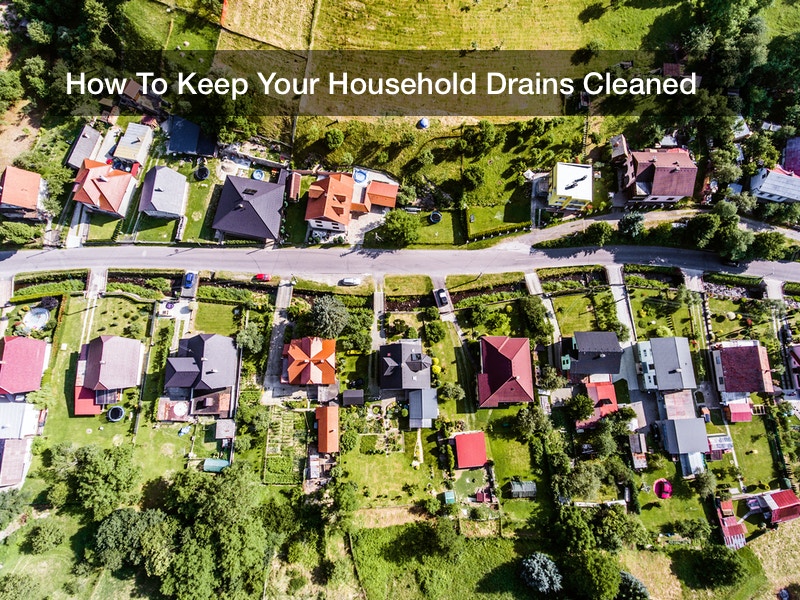
How To Keep Your Household Drains Cleaned

For as many times as you use the sink, the shower or the faucets in your house on a daily basis, do you notice there’s slow drip after you turn any of those off? Do you notice water pooling up anywhere after something has been running for a while like the shower or the sink?
If you have noticed things like that, chances are good that you’ve got some good, old-fashioned household leaks. You may think much of that slow drip from a faucet, but, over time, things like that can cause a whole mess of problems.
The numbers don’t lie:
- The average household’s leaks account for more than 10,000 gallons of wasted water every year, roughly the amount needed to wash 270 laundry loads.
- A leaky faucet wastes more than 3,000 gallons of water per year.
- Anywhere from 20 to 35% of household toilets leak to some degree according to research studies.
To reduce water waste, optimize a household plumbing system and avoid a call to a plumbing service, it’s important to make sure your drains are clean. Staying vigilant about identifying, sights, sounds and smells can help you avoid clogged drains and the aid of plumbing services.
Signs of a clogged drain include:
- Slow Drainage: A sink filled with water is often a sign of a clogged drain and it’s important to check that all your drains dispose of water properly.
- Bad Smells: Odors are usually a dead giveaway to a plumbing problem. They arise when waste builds up in a plumbing system and the accumulation of bacteria and mildew can do quite a bit of damage to pipes, in addition to making the surrounding area smell bad.
- Rust: Rust is another indicator of a problem. The formation of rust around a metal drain occurs when iron is exposed to air and water.
-
-
So now that you know the signs, how to you keep your drains clean? For starters, it’s important to know and understand the proper methods of drain cleaning for all the different drains in your house.
- Kitchen Sink Drains: If you’re want to push food scraps from dinner into the sink, stop doing that immediately. It clogs your drain and all but ensures a plumbing service will be paying you a visit. The only substances that are good for a drain are soap and water.
- Toilet Drains: The only things flushed down toilets should be waste from your body and toilet paper. Take extra care if you’ve got something that’s labeled flushable; there’s a good chance it’s not and it’s a fast way to clog the toilet up.
- Shower Drains: A clogged shower drain can leave water puddling up around your feet and other debris collecting in the meantime.
-
If your home is need of drain cleaning, there’s plenty you can do at home if you don’t want to call a local plumbing service or professional drain cleaning service. Some helpful do-it-yourself (DIY) tips for draining cleaning include:
- Snake Augers: These tools allow you to clean deep into a pipe to prevent clogging. You insert the auger into the drain and rotate the handle to break up debris in the problem area. Run hot water through the drain when you’ve gotten rid of the clog.
- Chemical Cleaners: Chemical cleaners such as Drano contain acid and lye, which is meant to break up debris. Not all cleaners are the same though, so read labels before using anything.
- Plungers: Plungers can be a quick fix to a clogged drain, especially in a toilet for a sink. It must be done properly though. Make sure to place the plunger head against the drain to create a seal so that no air gets through. Push on the plunger 5-10 times until the head inverts and the water begins to drain.
To keep your home plumbing system up-to-date and running smoothly, clean your drains regularly. Pay attention for warning signs and don’t hesitate to fix problems when they arise. Whether you’re looking for DIY options or a professional plumbing service, there are plenty of options for drain cleaning to stop leaks and clogs fast, rather than causing bigger plumbing problems in the long run.Home Improvement0
- Kitchen Sink Drains: If you’re want to push food scraps from dinner into the sink, stop doing that immediately. It clogs your drain and all but ensures a plumbing service will be paying you a visit. The only substances that are good for a drain are soap and water.